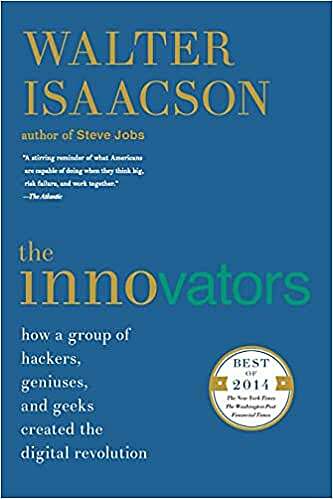
My highlights from the book:
1. The history of the world is but the biography of great men.
2. She deserves respect as a person who, rising above the expectations of her background and gender and defying plagues of family demons, dedicated herself diligently to complex mathematical feats that most of us never would or could attempt.
3. Don’t worry about people stealing an idea. If it’s original you will have to ram it down their throats.
4. What made him special was his insatiable curiosity about inventions. He began to read every new patent issued. “You read everything—that’s part of the job. You accumulate all this trivia and you hope that someday maybe a millionth of it will be useful.”
5. Andy Grove had a blunt, no-bullshit style. It was the same approach Steve Jobs would later use: brutal honesty, clear focus, and a demanding drive for excellence.
6. Grove’s mantra was “Success breeds complacency. Complacency breeds failure. Only the paranoid survive.”
7. I am proud of the way we were able to engineer Pong, but I’m even more proud of the way I figured out and financially engineered the business. Engineering the game was easy. Growing the company without money was hard.
8. Steve Jobs said he learned some important lessons at Atari, the most profound being the need to keep interfaces friendly and intuitive. Instructions should be insanely simple: “Insert quarters, avoid Klingons.” Devices should not need manuals. That simplicity rubbed off on him and made him a very focused product person.
9. The greatest innovation would come not from the people who created the breakthroughs but from the people who applied them usefully.
10. Steve Case applied the two lessons he had learned at Procter & Gamble: make a product simple and launch it with free samples.
Learn more ideas from history's greatest entrepreneurs by listening to Founders podcast. Read more highlights.